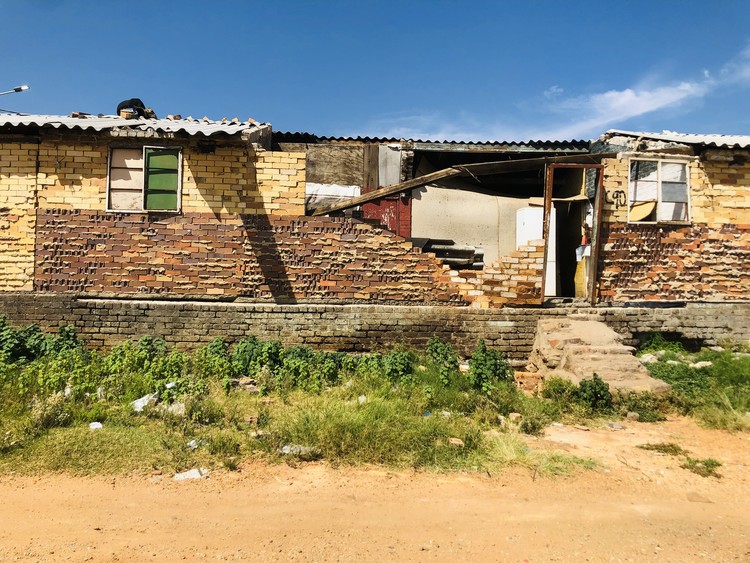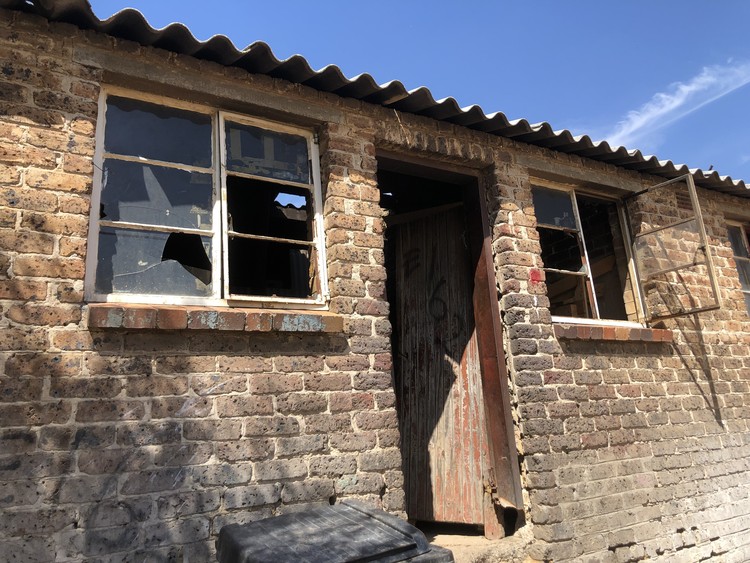Joburg mayor snubs Diepkloof Hostel to deal with water crisis
People living in crumbling homes accuse the mayor of disrespecting them
This is the state of the homes of families living in the Diepkloof Hostel in Soweto. Photo: Silver Sibiya
- After decades of having to make do without running water and proper electricity, residents at the Diepkloof Hostel in Soweto finally received these much-needed services.
- But residents were angered when City of Johannesburg Mayor Kabelo Gwamanda cancelled his visit to the area at the eleventh hour on Tuesday.
- This after Gwamanda had promised to the community that he would come back after visiting the hostels in June last year.
Diepkloof Hostel residents have accused City of Johannesburg Mayor Kabelo Gwamanda of “disrespecting their plight” after he snubbed them by cancelling his visit to the area at the eleventh hour on Tuesday.
But the City says Gwamanda was called to attend urgent meetings to resolve the current water crisis in parts of Joburg.
While residents welcomed the long-awaited installation of electricity and water in their homes this week, many of them said they were disappointed that the mayor was a no-show.
This after Gwamanda made verbal promises to the community after visiting the hostels in June last year and witnessed the deplorable conditions they lived in, as reported by Daily Maverick. His visit followed weeks of disruptive protests by hostel dwellers.
A year after they protested, the residents’ homes got electricity formally for the first time in decades late on Tuesday.
The hostels, in Soweto, were built in the 1970s for workers coming from rural areas to work in the city. The homes were then taken over and are managed by the municipality. However, more than 7,000 residents have had to survive without water and proper electricity for years while their homes have become dilapidated.
All of the brick structures are crumbling, they have broken windows, doors and when it rains water floods through holes in the roofs.
One of the leaders, Sibongiseni Khoza, said they felt disrespected and taken for granted when the mayor cancelled his visit on Tuesday. “They don’t respect us as people of the hostels. If they continue not respecting us, we will find a way to make them respect us,” he said.
A goat drinks from one of the recently installed communal taps.
Khoza warned of further action should the mayor continue to snub them. He said while they were happy that water and electricity had been installed, their housing conditions remain deplorable.
He said most hostel residents have said that they will not vote until they are shown plans to refurbish the hostels.
Another hostel leader Dumisani Mncube, who has lived there since 1984, said: “The problem is our houses are falling [apart] … We were hoping for an opportunity to talk to the mayor about our situation.”
Mncube said there are 70 mobile toilets shared by thousands of residents. “We still have shortages of toilets that have put us at the same level as people who sleep in the streets,” he said.
City of Johannesburg Human Settlements spokesperson Neo Goba said they were looking into repairing the roofing.
Gwamanda’s spokesperson Mlimandlela Ndamase confirmed that the mayor had to cancel his pre-arranged visit on Tuesday “to attend to the protracted water disruptions”.
He said Gwamanda would return to the hostels “at a later stage” to gauge the community’s satisfaction with progress on projects to improve their living conditions.
Gauteng Department of Human Settlement spokesperson Tahir Sima said the department is responsible for busy planning work to be done at the hostels.
“Once the City of Johannesburg approves this planning, we will then hand over the hostel to the City to start with construction,” he said.
Most of the structures have broken windows, doors and holes in the roofs.
Support independent journalism
Donate using Payfast

Don't miss out on the latest news
We respect your privacy, and promise we won't spam you.
Next: Eastern Cape college classes disrupted by student protests
Previous: SA company signs dubious deal over debt collections in Lesotho
© 2024 GroundUp. This article is licensed under a Creative Commons Attribution-NoDerivatives 4.0 International License.
You may republish this article, so long as you credit the authors and GroundUp, and do not change the text. Please include a link back to the original article.
We put an invisible pixel in the article so that we can count traffic to republishers. All analytics tools are solely on our servers. We do not give our logs to any third party. Logs are deleted after two weeks. We do not use any IP address identifying information except to count regional traffic. We are solely interested in counting hits, not tracking users. If you republish, please do not delete the invisible pixel.



